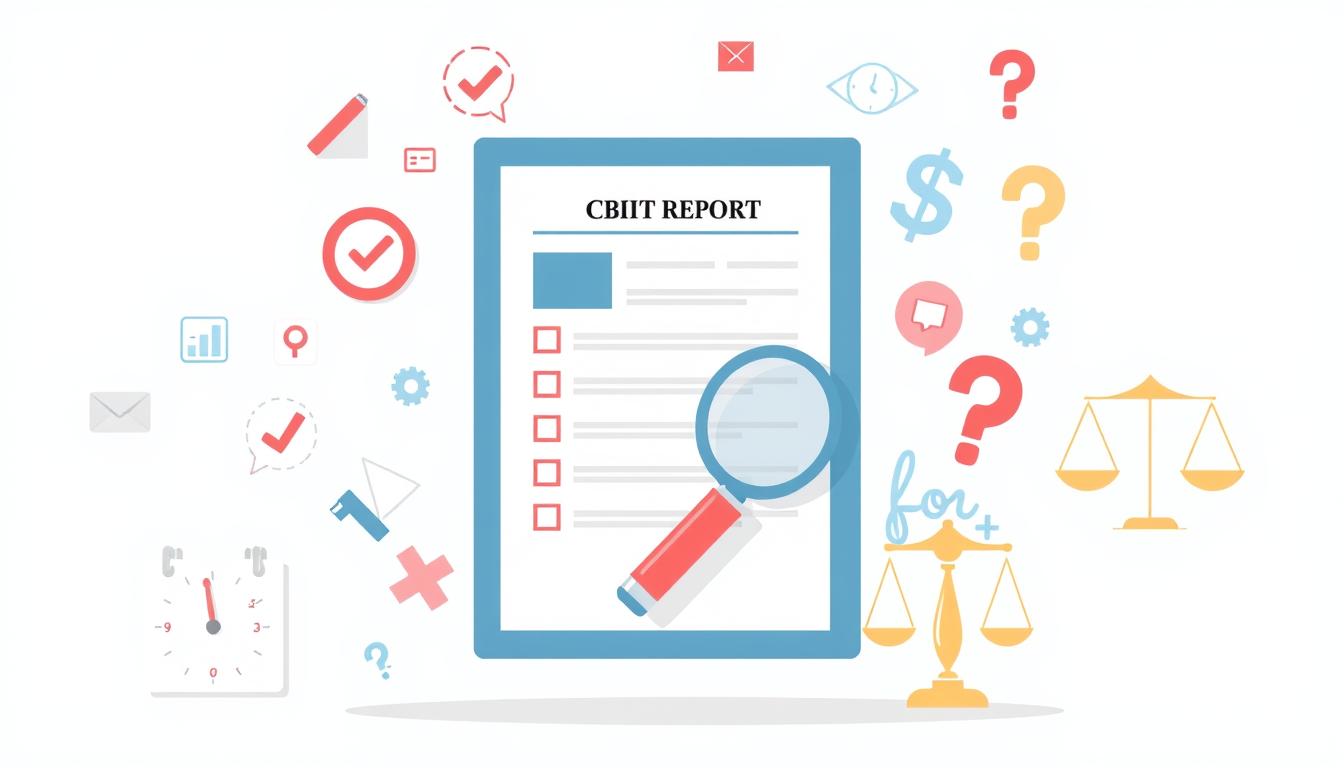Your credit profile plays a vital role in your financial health. Credit inquiries can significantly impact your credit score. Let’s explore credit inquiries and how to manage them effectively.
We’ll cover hard and soft inquiries, their effects on your score, and strategies for handling them. This guide will help you maintain a strong credit profile.
Key Takeaways
- Understand the distinction between hard and soft credit inquiries and their varying impacts on your credit score.
- Discover industry-specific guidelines and best practices for managing the frequency and timing of credit inquiries.
- Learn how to monitor your credit report and dispute any inaccurate or unauthorized inquiries to protect your credit history.
- Explore strategies for rebuilding your credit score after experiencing hard credit checks.
- Adopt effective credit inquiry management techniques to maintain a healthy credit profile.
What is a Credit Inquiry?
A credit inquiry is when a lender checks your credit report. It helps them decide if you’re trustworthy for credit. Lenders use this to figure out how risky it is to lend you money.
Understanding Hard and Soft Inquiries
Credit inquiries come in two types: hard and soft. Hard inquiries happen when you apply for new credit. These can negatively affect your credit score.
Soft inquiries occur when you check your own credit or during background checks. They don’t impact your credit score at all.
Impact of Inquiries on Your Credit Score
Only hard credit inquiries can change your credit score. Each hard inquiry might lower your score by 5 to 10 points. This effect lessens over time.
Multiple hard inquiries in a short time can hurt your score more. Both types of inquiries show up on your credit report.
| Type of Inquiry | Impact on Credit Score |
|---|---|
| Hard Inquiry | Negative impact (5-10 point drop) |
| Soft Inquiry | No impact |
“Understanding the different types of credit inquiries and their impact on your credit score is crucial for maintaining a healthy financial profile.”
Types of Credit Inquiries
Credit inquiries come in two main types: hard and soft. Each type affects your credit score differently. Understanding these differences is key to managing your credit effectively.
Hard Inquiries: When They Occur
Hard inquiries happen when you apply for new credit. This includes credit cards, loans, mortgages, or car financing. These inquiries appear on your credit report.
They can slightly lower your credit score. Multiple hard inquiries in a short time can have a bigger impact. These inquiries stay on your report for up to two years.
Common situations that cause hard inquiries include:
- Applying for a new credit card
- Applying for a personal loan or auto loan
- Applying for a mortgage or refinancing an existing mortgage
- Applying for a new cell phone contract or cable/internet service
Hard inquiries are normal in credit applications. Lenders use them to check your creditworthiness. They help lenders decide whether to give you credit.
Knowing about hard inquiries helps you make smart credit choices. You can take steps to minimize their effect on your credit score. This knowledge empowers you to manage your credit more effectively.
Soft Inquiries and Their Minimal Impact
Soft inquiries have little effect on your credit score. They happen when entities review your credit report for non-credit reasons. These can include checking your own credit or receiving pre-approved offers.
Soft inquiries don’t impact your credit score at all. Lenders can’t see them when reviewing your credit report. This means they barely affect your credit background check or credit monitoring.
Common examples of soft inquiries include:
- Checking your own credit report
- Receiving pre-approved credit card offers
- Undergoing a credit background check for employment or rental purposes
- Monitoring your credit score through a credit monitoring service
Knowing the difference between hard and soft inquiries is crucial. It helps you manage your credit wisely. You can make smart choices to protect your financial health.
credit inquiry explanation
A credit inquiry shows up on your credit report when someone checks your credit info. It’s vital to know how different inquiries affect your credit score. This knowledge helps you manage your credit profile better.
There are two main types of credit inquiries:
- Hard inquiries happen when you apply for new credit, like a card or loan. These can lower your credit score slightly. They show you’re looking for more credit.
- Soft inquiries occur for other reasons, such as routine checks by current lenders. These don’t affect your credit score at all.
The effect of inquiries on your score depends on their type and number. A single hard inquiry usually has a small, short-term impact. However, many hard inquiries in a short time can hurt your score more.
| Type of Inquiry | Impact on Credit Score |
|---|---|
| Hard Inquiry | May cause a small, temporary drop in credit score |
| Soft Inquiry | No impact on credit score |
Keep an eye on your credit report to watch for hard inquiries. This helps you limit their impact on your score. By doing so, you can maintain a healthy credit profile.

How Many Inquiries are Too Many?
Credit inquiries can affect your credit score differently. The impact depends on your credit profile and industry. There’s no fixed rule for how many inquiries are too many.
Industry-Specific Guidelines
Mortgage and auto lenders often perform multiple hard inquiries. These are usually grouped and counted as one inquiry. This helps reduce the impact on your credit score.
Timing and Frequency Considerations
Multiple hard inquiries in 30 to 45 days can significantly impact your credit score. However, their effect lessens over time. Older inquiries matter less as your credit history grows.
| Credit Inquiry Type | Impact on Credit Score | Considerations |
|---|---|---|
| Hard Inquiry | Usually a 5-10 point drop | Multiple hard inquiries within a short period may be grouped and counted as a single inquiry |
| Soft Inquiry | No impact on credit score | Soft inquiries are typically used for pre-approvals or background checks and do not affect your credit utilization or credit inquiries |
Understanding credit inquiry types is crucial. Know their potential impact and industry guidelines. This helps ensure your credit activities don’t harm your overall credit score.
Minimizing the Impact of Hard Inquiries
Hard inquiries can negatively affect your credit score. However, you can take steps to reduce their impact. Understanding hard inquiries and credit scoring models helps you make smart decisions.
Space out your credit applications over time. This limits the number of hard inquiries. Multiple applications in a short period can cause a bigger drop in your score.
Prioritize pre-approvals or pre-qualifications over full credit applications. These soft inquiries don’t affect your credit score. You can explore options without incurring hard inquiries.
Learn about credit scoring models used by different lenders. Some models are more sensitive to hard inquiries than others. This knowledge helps you decide when and where to apply for credit.
| Credit Scoring Model | Sensitivity to Hard Inquiries |
|---|---|
| FICO Score | Moderately Sensitive |
| VantageScore | Less Sensitive |
These strategies can help protect your credit score. By being proactive, you can maintain a healthy credit history. Remember to balance your credit needs with preserving your score.

Credit Monitoring and Inquiry Management
Keeping an eye on your credit report helps you track credit inquiries and changes to your credit profile. You can spot and fix any wrong or unauthorized credit inquiries. This helps protect your credit score.
Benefits of Monitoring Your Credit Report
Credit monitoring services offer tools and alerts to manage your credit inquiries and overall credit health. Here are some key benefits of regular credit report monitoring:
- Identify and dispute any unauthorized or inaccurate credit inquiries that could negatively impact your credit score.
- Receive alerts about changes to your credit report, allowing you to address potential issues quickly.
- Monitor your credit utilization and other factors that influence your credit score.
- Develop a better understanding of your overall credit profile and make informed decisions about managing your credit.
By actively watching your credit report, you can take charge of your credit. You can also deal with any credit inquiries or issues that come up.
This helps ensure your credit score truly shows how financially responsible you are.
“Regularly reviewing your credit report and addressing any inaccuracies or unauthorized inquiries can be a powerful tool in maintaining a healthy credit profile.”
Disputing Inaccurate or Unauthorized Inquiries
Spotted incorrect or unauthorized credit inquiries on your report? You can dispute them with credit bureaus. This can boost your credit score and protect your credit history.
The dispute process involves submitting proof and asking to remove questionable inquiries. This helps you control your credit profile and ensure its accuracy.
Steps to Dispute Inaccurate or Unauthorized Inquiries
- Review your credit report thoroughly to identify any questionable credit inquiries.
- Gather evidence, such as account statements or communication with lenders, to substantiate your claim.
- Contact the credit bureaus (Experian, Equifax, and TransUnion) and initiate a formal credit dispute for each inaccurate or unauthorized inquiry.
- Provide the credit bureaus with the necessary documentation to support your dispute.
- Follow up with the credit bureaus to ensure the disputed inquiries are investigated and promptly removed from your credit report if found to be inaccurate or unauthorized.
Addressing credit inquiries can greatly impact your financial health. Reviewing your credit report and disputing errors protects your credit history.
It also helps maintain a healthy credit score. This can lead to better financial opportunities in the future.
“Regularly monitoring your credit report and disputing any inaccuracies is a crucial step in maintaining a strong credit profile.”

Credit bureaus must investigate and respond to disputes within a set timeframe. Stay proactive and persistent to ensure your report’s accuracy.
This approach helps your credit report reflect your true financial history. It can also support your journey towards achieving financial goals.
Rebuilding Your Credit After Hard Inquiries
Hard credit inquiries can hurt your credit score. But don’t worry! You can use proven strategies to rebuild your credit profile and regain financial stability.
Strategies for Improving Your Credit Score
Reducing your credit utilization is key. Keep your credit card balances low. Aim for a utilization rate of 30% or less.
Make on-time payments on all your credit accounts. This plays a big role in improving your credit history.
Regular credit monitoring is vital. Stay informed about errors or unauthorized activity on your report. Fix any issues quickly to keep your credit score accurate.
- Reduce credit card balances and keep utilization low
- Establish a history of on-time payments
- Monitor your credit report diligently
You can rebuild your credit score with a smart plan and hard work. It takes time and effort, but you’ll regain financial confidence.
“Rebuilding credit takes time, but it’s a worthwhile investment in your financial future.”
| Strategy | Impact on Credit Score |
|---|---|
| Reducing Credit Utilization | Significant Improvement |
| Establishing On-Time Payments | Substantial Improvement |
| Monitoring Credit Report | Moderate Improvement |
Best Practices for Managing Credit Inquiries
A healthy credit score is vital for financial success. Managing credit inquiries effectively helps protect your credit history. Let’s explore some best practices to minimize their impact.
Understanding different types of credit inquiries is crucial. Hard inquiries can temporarily lower your credit score. Soft inquiries don’t affect your score.
Space out your credit applications to reduce hard inquiries. This simple step can help maintain a better credit score.
Regular credit monitoring is key. Keep an eye on your credit report for any errors. Dispute inaccurate or unauthorized credit inquiries promptly.
- Understand the distinction between hard and soft inquiries and their impact on your credit score.
- Space out credit applications to minimize the number of hard inquiries.
- Monitor your credit report regularly to identify and dispute any inaccurate or unauthorized credit inquiries.
These practices help you control credit inquiries. They also strengthen your credit score. Your financial future depends on smart credit management.

Conclusion
Credit inquiries are vital in credit evaluation. Understanding their impact helps you manage them effectively. You can make smart decisions about credit applications by knowing hard and soft inquiries.
Monitor your credit report regularly. Address any errors or unauthorized inquiries promptly. This helps maintain a healthy credit profile.
Be mindful of inquiry numbers and application timing. This can minimize the impact on your credit score. Taking control of credit inquiries helps build a solid financial foundation.
A proactive approach to credit management is crucial. It paves the way for achieving your financial goals. Stay informed and take charge of your credit future.

